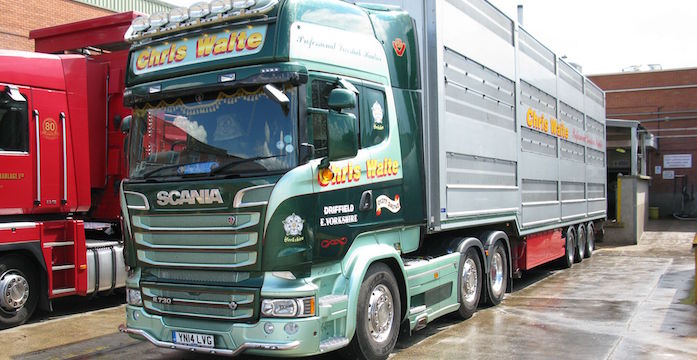The NPA has stressed that any changes made to regulations governing animal transport must be based on sound science, rather than emotive concerns or political expediency.
The association has published its response to Defra’s call for evidence on ‘controlling live exports for slaughter and to improve animal welfare during transport after the UK leaves the EU’.
The document, compiled by chief executive Zoe Davies with input from NPA members, can be viewed here
Outlining the principles underpinning the NPA’s views, the document states: “Whilst the NPA places animal welfare at the forefront of any consideration, we must stress that concern related to the transport of animals has to date been largely driven by perceived wisdom rather than robust scientific evidence.
“Any future regulatory changes should be based upon sound fundamental and applied science and not be derived from emotive concerns or political expediency. There has been a vast amount of research conducted over the years looking at every aspect of livestock transport. We welcome the action by Defra to commission the SRUC to undertake a review of that research and have a great respect for the scientists involved.”
The document highlights how the vast majority of movements officially described as ‘exports’ or ‘imports’ are actually movements across the Irish border, most of which will be relatively short distances.
Of 11,359 live pig exports in 2017, 8,917 were to the Republic of Ireland. The only other significant quantities were to Belgium (1,204) and Italy (968).
Similarly, of more than 448,000 live imports, all but 3,600 came across the Irish border.
While just over 9 million pigs a year are slaughtered in the UK, there are no live pigs exported or imported for slaughter outside of the British Isles, the document states.
It adds: “Trade in high value breeding stock, both within and outside of the UK is common but involves lower numbers. This trade is crucial, both to ensure continued genetic improvement within the UK pig herdand to allow our world class genetics, developed within the UK to be exported to countries all over the world.”
The document concludes: “We have seen no evidence to suggest that pig welfare during transport is poor. We believe that the current welfare in transport requirements and standards are fit for purpose and working well, but there are a few areas that could be improved (these are listed in the document).
“We do however agree that data already collected on fitness to travel assessments and when pigs arrive at slaughter plants could be interrogated more thoroughly to identify any common factors/issues of concern or areas that could be improved.”




